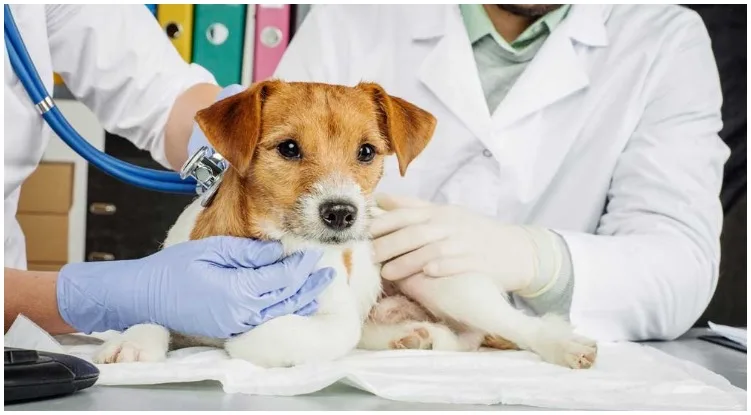Just like humans, dogs can also develop pneumonia. In case you didn’t know, this is the inflammation of the lungs. Possible causes of pneumonia in dogs include viruses, fungi and bacteria. There are also some other causes, but they are less common.
Thanks to modern medicine, it’s possible to treat pneumonia in dogs. But you should still take the disease seriously. Because if medical care is not provided, your dog can even die from it. Losing our pets is a scary. So make sure to inform yourself about all the possible health complications.
Below you will find out which symptoms indicate pneumonia, what treatment options are available and what the chances of recovery for your dog are.
Causes
There are very different causes that can lead to pneumonia in dogs. In many cases, infestation of the lungs with germs, such as bacteria, viruses, fungi or parasites, is responsible for pneumonia.
Other possible causes are:
- The inhalation of toxins
- Food and water that enters the lungs
- Kennel cough
- Tumors or other inflammatory diseases
The weaker his immune system, the greater the risk that your dog will develop pneumonia. So make sure that your dog is as healthy as possible.
Symptoms of pneumonia in dogs
If your dog suffers from pneumonia, a number of complaints occur. How pronounced the symptoms are depends essentially on how far the disease has already progressed.
These complaints may indicate pneumonia in dogs:
- Fever
- Fatigue
- Cough
- Rattling breathing sounds
- Loss of appetite
- Nasal discharge
The further condition progresses, the stronger the breathing problems your dog suffers from. In the worst case scenarios, he could even have a lack of oxygen. You will recognize this by his gums turning blue.
Diagnosis
Pneumonia can be a sneaky disease that initially starts with coughing. It’s important to waste no time and take your dog to the vet as soon as possible.
The longer the disease remains untreated, the more it weakens your dog’s body. This makes him susceptible to further infections, which can further worsen his condition. In addition, there is a risk that pneumonia in dogs causes other diseases that could also put your dog’s health at risk.
For the diagnosis of pneumonia, the veterinarian will carry out various examinations on your dog. First he will listen to his lungs with a stethoscope. In addition, X-rays are usually taken and an ultrasound is carried out. In the case of endoscopy, the veterinarian can also determine how far pneumonia has already progressed.
Your dog could also be tested for different bacteria to find out which one is causing the disease. Either way, your vet will be the one deciding what the best method is. Trust your doctor and make sure your dog feels as comfortable as possible.
Pneumonia in dogs: treatment and prognosis
For a successful treatment of your dog’s pneumonia, it is first necessary for the veterinarian to know what causes the disease. Only then can he treat your pup correctly. Make sure you trust your vet with this process too.
Antibiotics are usually necessary to cure the actual inflammation of the lung. In most cases, pneumonia can be treated well with them. Your dog should feel like his old self pretty quickly. In some rare cases it may take some time for them to kick in. Either way, they can help your pup get better.
Apart from good old antibiotics, you can also help him with some mucus removers. There are natural, herbal ones available on Amazon. But don’t start any treatment without seeing a professional first. Your vet will be the one having the last word.
Is pneumonia contagious in dogs?
As a rule, there is no risk that one dog will infect another with pneumonia. Depending on the cause, however, the underlying disease that triggered pneumonia may well be contagious.

